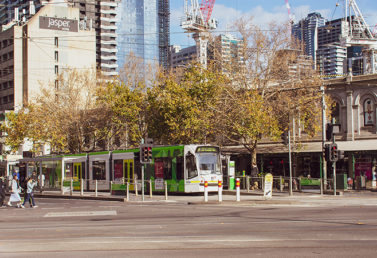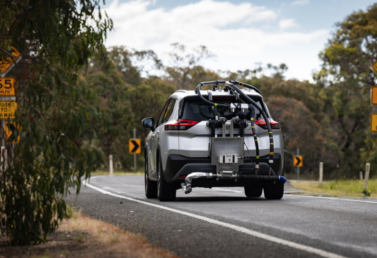Transport ministers called on to urgently improve national road safety management, after new data confirmed COVID’s travel restrictions, lockdowns, and reduced traffic volumes did not stop Australia’s road toll rising

Australia’s peak motoring body is calling on transport ministers to urgently improve national road safety management, after new data confirmed COVID’s travel restrictions, lockdowns, and reduced traffic volumes did not stop Australia’s road toll rising 1.4 per cent (to 1,126 deaths) in the 12 months to November 30.
Queensland was the state with the largest annual rise in fatalities (10.2 per cent), while motorcyclists were the road user group to suffer the largest annual increase in deaths (up 15.9 per cent).
AAA Managing Director, Michael Bradley, said: “Australia’s worsening road toll reflects poorly on our chaotic national approach to road safety, which has been shown by recent inquiries and reviews to still lack clarity and coordination.
“National road trauma data collection and reporting remains shambolic, and Ministers considering Australia’s overdue National Road Safety Strategy 2021-2030, need to prioritise this issue”, he said. “At a time when Australians have daily reporting of COVID infections, hospitalisations, deaths, and vaccinations split by age, gender, and jurisdiction, nobody knows how many Australians were seriously injured on our roads last year, let alone the interventions likely to deliver improvements in the future.
“Road trauma has killed more than 1,000 Australians every year since 1935, however national data coordination problems continue to thwart evidence-based policy and well-targeted funding.”
The AAA is concerned the draft National Road Safety Strategy 2021-2030 repeats past mistakes and will again fail to generate the comprehensive data needed to either monitor or manage Australia’s road trauma crisis. The AAA continues to call for federal and state ministers to agree measurable actions; deadlines; responsibilities between layers of government; and how they are going to measure success.
Mr Bradley said: “Australia’s data-driven response to COVID shows what’s possible within our federation and what governments should aspire to in road safety.”
Australia’s latest road safety data shows regional areas to be particularly affected. Despite only accounting for 28 per cent of the national population, regional Australia now records 62 per cent of Australian road deaths, and regional Australians are five-times more likely to die from road trauma than those in metropolitan areas.
Key Road Death Data:
| Jurisdiction | 12 mths to Nov 2021 | 12 mths to Nov 2020 | Increase | % Increase |
| National | 1,126 | 1,110 | 16 | 1.4% |
| NSW | 266 | 291 | -25 | -8.6% |
| VIC | 230 | 216 | 14 | 6.5% |
| QLD | 291 | 264 | 27 | 10.2% |
| SA | 100 | 98 | 2 | 2.0% |
| WA | 159 | 158 | 1 | 0.6% |
| TAS | 35 | 38 | -3 | -7.9% |
| NT | 35 | 38 | -3 | -7.9% |
| ACT | 10 | 7 | 3 | 42.9% |
Key Road Death Data (Road User Groups):
| Road User | 12 mths to Nov 2021 | 12 mths to Nov 2020 | Increase | Percentage Increase |
| Driver | 550 | 542 | 8 | 1.5% |
| Passenger | 180 | 193 | -13 | -6.7% |
| Pedestrian | 135 | 136 | -1 | -0.7% |
| Motorcyclists | 219 | 189 | 30 | 15.9% |
| Cyclist | 35 | 46 | -11 | -23.9% |
Media contact: Shaun Rigby
[email protected]
0438 021 936
The Australian Automobile Association is the nation’s peak motoring body, representing Australia’s state-based motoring clubs and their 8.5 million members. The AAA is an apolitical and technology-neutral advocate for federal transport policy that improves safety, affordability, and mobility.

The latest AAA Transport Affordability Index reveals transport cost rises exceeded the consumer price index not only in the September 2023 quarter but also over the 12 months to the end of September.
read more
Initial results of Australia’s first program to test vehicle real-world performance show the cars tested use up to 13% more fuel on the road than they did in lab tests reported by manufacturers.
read more
The quarterly update of the AAA’s EV Index shows the Australian new vehicle market continuing to change.
read more